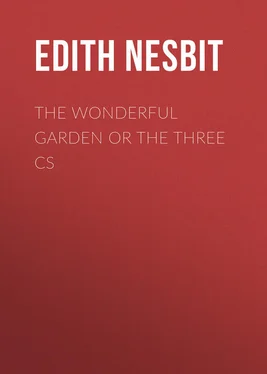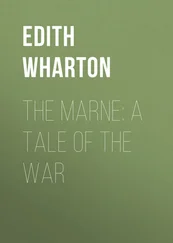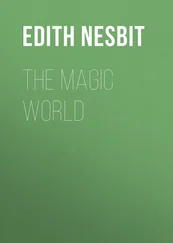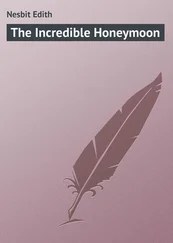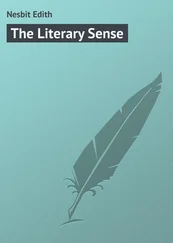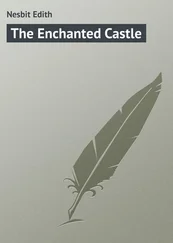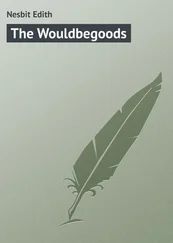Edith Nesbit - The Wonderful Garden or The Three Cs
Здесь есть возможность читать онлайн «Edith Nesbit - The Wonderful Garden or The Three Cs» — ознакомительный отрывок электронной книги совершенно бесплатно, а после прочтения отрывка купить полную версию. В некоторых случаях можно слушать аудио, скачать через торрент в формате fb2 и присутствует краткое содержание. ISBN: , Жанр: foreign_prose, на английском языке. Описание произведения, (предисловие) а так же отзывы посетителей доступны на портале библиотеки ЛибКат.
- Название:The Wonderful Garden or The Three Cs
- Автор:
- Жанр:
- Год:неизвестен
- ISBN:http://www.gutenberg.org/ebooks/52907
- Рейтинг книги:5 / 5. Голосов: 1
-
Избранное:Добавить в избранное
- Отзывы:
-
Ваша оценка:
- 100
- 1
- 2
- 3
- 4
- 5
The Wonderful Garden or The Three Cs: краткое содержание, описание и аннотация
Предлагаем к чтению аннотацию, описание, краткое содержание или предисловие (зависит от того, что написал сам автор книги «The Wonderful Garden or The Three Cs»). Если вы не нашли необходимую информацию о книге — напишите в комментариях, мы постараемся отыскать её.
The Wonderful Garden or The Three Cs — читать онлайн ознакомительный отрывок
Ниже представлен текст книги, разбитый по страницам. Система сохранения места последней прочитанной страницы, позволяет с удобством читать онлайн бесплатно книгу «The Wonderful Garden or The Three Cs», без необходимости каждый раз заново искать на чём Вы остановились. Поставьте закладку, и сможете в любой момент перейти на страницу, на которой закончили чтение.
Интервал:
Закладка:
This floral presentation gave a glow and glory to their departure. At the very last moment Caroline leaned out of the window to say:
‘Oh, Aunt Emmeline, when Miss Peckitt comes to finish those muslin frocks that you’re going to send us, would you try to manage to give her a Canterbury bell from me? She’ll know what it means. But in case she doesn’t, it’s gratitude – in the book. And we’ll put flowers in our letters expressing our feelings. Good-bye.’
Uncle Percival took them to the station and —
But why should I describe a railway journey? You know exactly what it is like. I will only say that it was very dusty, and so sunny that the children wanted the blinds down, only a very tailor-made lady with a cross little grey dog said ‘No.’ And you know how black your hands get in the train, and how gritty the cushions are, and how your faces get black too, though you are quite certain you haven’t touched them with your hands. The one who got the little bit of the engine in its eye was Charles that time. But some one always gets it, because some one always puts its head out of the carriage window, no matter what the printed notices may say. You know all this. What you don’t know is what happened at the junction where, carefully attended by the guard, they changed trains. They had to wait for some time, and when they had looked at the bookstall – which was small and dull, and almost entirely newspapers – they looked at the other people who had to wait too. Most of them were of dull appearance; but there was one tall gentleman who looked, they all agreed, exactly like Mr. Murdstone in David Copperfield .
‘And he’s got David with him, too,’ said Charlotte. ‘Look!’
The Murdstone gentleman, having bought the Athenæum , the Spectator , and a seven-penny reprint of the works of Marcus Aurelius, had gone to a bench on which sat a sulky-looking boy. He spoke to the boy, and the boy answered. And the gentleman walked off.
‘He’s gone to have a bun all by himself,’ said Charles. ‘Selfish pig!’
‘I say, let’s sit down on the bench. You sit next him, Charles. Perhaps he’d talk to us.’ This was Caroline’s idea.
They did; and ‘he,’ who was, of course, the sulky boy, did speak to them. But not till they’d spoken to him. It was Charles who did it.
‘Are you going on in this next train?’ he said, ‘because, if you are, we can get into your carriage. We shall be company for you.’
‘What’s the good?’ said the boy, unexpectedly; ‘it’ll only make it worse afterwards.’
‘What worse?’
‘The being alone.’
‘Well, anyhow,’ said Caroline, coming round to sit on the other side of him, ‘you’re not alone now. What’s up? Who is he? ’
‘He’s a schoolmaster. I should have thought you could have seen that.’
‘We thought he was like Mr. Murdstone.’
‘He is,’ said the strange boy; ‘exactly.’
‘Oh,’ said Charlotte joyously, ‘then you’ve read David . I say!’
They were all delighted. There is no bond like the bond of having read and liked the same books. A tide of friendliness swept over the party, and when they found that he had also read Alice in Wonderland , Wild Animals I Have Known , and Hereward the Wake , as well as E. Nesbit’s stories for children in the Strand Magazine , they all felt that they had been friends for years.
‘But tell us all about it, quick, before he comes back,’ urged Charles. ‘Perhaps we could help you – bring you jam tarts and apples with a rope ladder or something. We are yours to the death – you won’t forget that, will you? And what’s your name? And where do you live? And where are you going? Tell us all about it, quick!’ he urged.
Then out it all came. The strange boy’s name was Rupert Wix, and he was at a school – not half bad the school was – and old Filon – he was the classical chap – was going to take Rupert and two other chaps to Wales for the holidays – and now the other chaps had got measles, and so had old Filon. And old Mug’s brother – his name wasn’t really Mug, of course, but Macpherson, and the brother was the Rev. William Macpherson – yes, that was him, the Murdstone chap – he was going to take Rupert to his beastly school in the country.
‘And there won’t be any other chaps,’ said Rupert, ‘because, of course, it’s vac – just old Mug’s beastly brother and me, for days and weeks and years – until the rest of the school comes back. I wish I was dead!’
‘Oh, don’t!’ said Caroline; ‘how dreadful! They’ve got scarlet fever at our school, that’s why our holidays have begun so early. Do cheer up! Have some nut-chocolate.’ A brief struggle with her pocket ended in the appearance of a packet – rather worn at the edges – the parting gift of Aunt Emmeline.
‘Is old Mug’s brother as great a pig as he looks?’ Charles asked, through Rupert’s ‘Thank-yous.’
‘ Much greater,’ said Rupert cordially.
‘Then I know what I’d do,’ said Charlotte. ‘I’d run away from school, like a hero in a book, and have some adventures, and then go home to my people.’
‘That’s just it,’ said Rupert. ‘I haven’t got anywhere to run to. My people are in India. That’s why I have to have my hols at a beastly school. I’d rather be a dog in a kennel – much.’
‘Oh, so would I,’ said Charlotte. ‘But then I’d almost rather be a dog than anything. They’re such dears. I do hope there’ll be dogs where we’re going to.’
‘Where’s that?’ Rupert asked, more out of politeness than because he wanted to know.
‘I’ll write it down for you,’ said Caroline, and did, on a page of the new grey leather pocket-book Uncle Percival had given her. ‘Here, put it in your pocket, and you write and tell us what happens. Perhaps it won’t be so bad. Here he comes – quick!’
She stuffed the paper into Rupert’s jacket pocket as the tall Murdstone-like figure advanced towards them. The three children left Rupert and walked up the platform.
‘I’m glad we gave him the chock,’ said Charles, and the word was hardly out of his mouth before a cold, hard hand touched his shoulder (and his cheek as he turned quickly) and a cold, hard voice said:
‘Little boy, I do not allow those under my charge to accept sweetmeats from strange children, especially dirty ones.’
And with that the Murdstone gentleman pushed the chocolate into Charles’s hand and went back to his prey.
‘Beast! Brute! Beast!’ said Charles.
After this it was mere forlorn-hopishness and die-on-the-barricade courage, as Charlotte said later, that made the children get into the same carriage with Rupert and his captor. They might as well have saved themselves the trouble. The Murdstone gentleman put Rupert in a corner and sat in front of him with a newspaper very widely opened. And at the next station he changed carriages, taking Rupert by the hand as though he had been, as Charles put it, ‘any old baby-girl.’
But as Rupert went out Caroline whispered to him:
‘You get some borage and eat it,’ and Rupert looked ‘Why?’
‘Borage gives courage, you know,’ she said, too late, for he was whisked away before he could hear her, and they saw him no more.
They talked about him, though, till the train stopped at East Farleigh, which was their station.
There was a waggonette to meet them and a cart for their luggage, and the coachman said he would have known Caroline anywhere, because she was so like her mother, whom he remembered when he was only gardener’s boy; and this made every one feel pleasantly as though they were going home.
It was a jolly drive, across the beautiful bridge and up the hill and through the village and along a mile or more of road, where the green hedges were powdered with dust, and tufts of hay hung, caught by the brambles from the tops of passing waggons. These bits of hay made one feel that one really was in the country – not just the bare field-country of the suburb where Aunt Emmeline and Uncle Percival lived, where one could never get away from the sight of red and yellow brick villas.
Читать дальшеИнтервал:
Закладка:
Похожие книги на «The Wonderful Garden or The Three Cs»
Представляем Вашему вниманию похожие книги на «The Wonderful Garden or The Three Cs» списком для выбора. Мы отобрали схожую по названию и смыслу литературу в надежде предоставить читателям больше вариантов отыскать новые, интересные, ещё непрочитанные произведения.
Обсуждение, отзывы о книге «The Wonderful Garden or The Three Cs» и просто собственные мнения читателей. Оставьте ваши комментарии, напишите, что Вы думаете о произведении, его смысле или главных героях. Укажите что конкретно понравилось, а что нет, и почему Вы так считаете.
